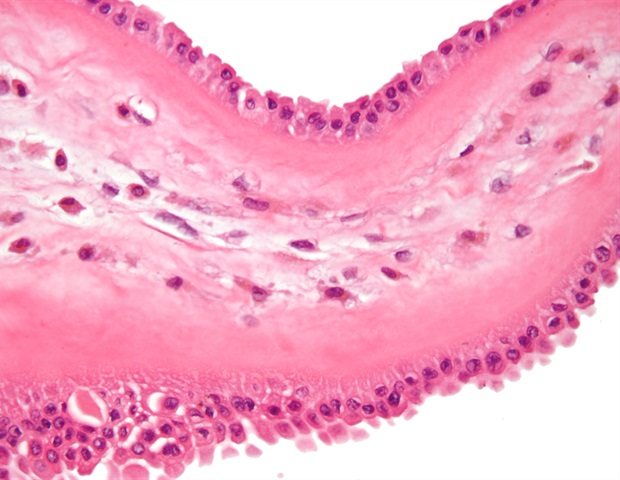[ad_1]

Present remedies for atrial fibrillation (AFib), a typical coronary heart situation characterised by quick and irregular beats that may result in stroke and coronary heart failure, have a number of unwanted side effects and are ineffective for stopping AFib recurrence.
New analysis led by investigators at Massachusetts Basic Hospital (MGH) and revealed in Science reveals that sure immune cells play a serious position within the growth of AFib. Focusing on these cells might subsequently signify a promising technique to deal with and stop AFib.
For the work, senior writer Matthias Nahrendorf, MD, PhD, an investigator in MGH’s Heart for Methods Biology and the Richard Moerschner Endowed MGH Analysis Institute Chair in Males’s Well being, and colleagues analyzed single cells from atrial coronary heart tissue collected from sufferers with and with out AFib. The analyses indicated that immune cells known as macrophages are essentially the most dynamic cell inhabitants within the atria throughout AFib, and these cells broaden greater than some other cell sort in diseased tissue.
The researchers additionally created a brand new mouse mannequin of AFib they dubbed “HOMER” and examined if and the way macrophages could cause AFib.
We discovered that recruited macrophages help irritation and fibrosis, or scarring, of the atria, which hinder electrical conduction between coronary heart cells and result in AFib. Inhibiting macrophage recruitment decreased AFib.”
Matthias Nahrendorf, MD, PhD, Investigator, MGH’s Heart for Methods Biology
Gene expression analyses revealed that in human and mouse hearts, the SPP1 gene is extremely overexpressed in macrophages throughout AFib. This gene produces the SPP1 protein (additionally known as osteopontin) that promotes tissue scarring and is elevated within the blood of sufferers with AFib. HOMER mice missing this protein had decreased numbers of atrial macrophages.
Future therapeutic methods for AFib may subsequently goal macrophages or macrophage-derived alerts akin to SPP1 that contribute to irritation and fibrosis. “We predict that this analysis lays the groundwork for immunomodulatory remedy of AFib, and we’re presently engaged on a number of methods to make this occur,” says Nahrendorf.
It’s going to even be essential to check how these methods would possibly complement present care. “By mapping cardiac and immune cells concerned in atrial fibrillation, this analysis advances subsequent steps towards learning how macrophage-targeted therapies might help present therapy,” says Michelle Olive, PhD, the deputy chief of the Atherothrombosis and Coronary Artery Illness Department throughout the Division of Cardiovascular Sciences on the Nationwide Coronary heart, Lung, and Blood Institute.
Extra co-authors embody Maarten Hulsmans, Maximilian J. Schloss, I-Hsiu Lee, Aneesh Bapat, Yoshiko Iwamoto, Claudio Vinegoni, Alexandre Paccalet, Masahiro Yamazoe, Jana Grune, Steffen Pabel, Noor Momin, Hana Seung, Nina Kumowski, Fadi Pulous, Daniel Keller, Constanze Bening, Ursula Inexperienced, Jochen Ok. Lennerz, Richard N. Mitchell, Andrew Lewis, Barbara Casadei, Oriol Iborra-Egea, Antoni Bayes-Genis, Samuel Sossalla, Chin Siang Ong, Richard N. Pierson, Jon C. Aster, David Rohde, Gregory R. Wojtkiewicz, Ralph Weissleder, Filip Ok. Swirski, George Tellides, George Tolis, Serguei Melnitchouk, David J. Milan, Patrick T. Ellinor, and Kamila Naxerova.
This work was supported by the Nationwide Institutes of Well being, the American Coronary heart Affiliation, Deutsche Forschungsgemeinschaft, Mercator fellow, DFG, British Coronary heart Basis, NIHR Oxford Biomedical Analysis Centre, and European Union MAESTRIA 965286.
The Nationwide Institutes of Well being (NIH) offered partial help for this analysis, however the launch doesn’t signify the official views of NIH.
Supply:
Journal reference:
Hulsmans, M., et al. (2023) Recruited macrophages elicit atrial fibrillation. Science doi.org/10.1126/science.abq3061.
[ad_2]
